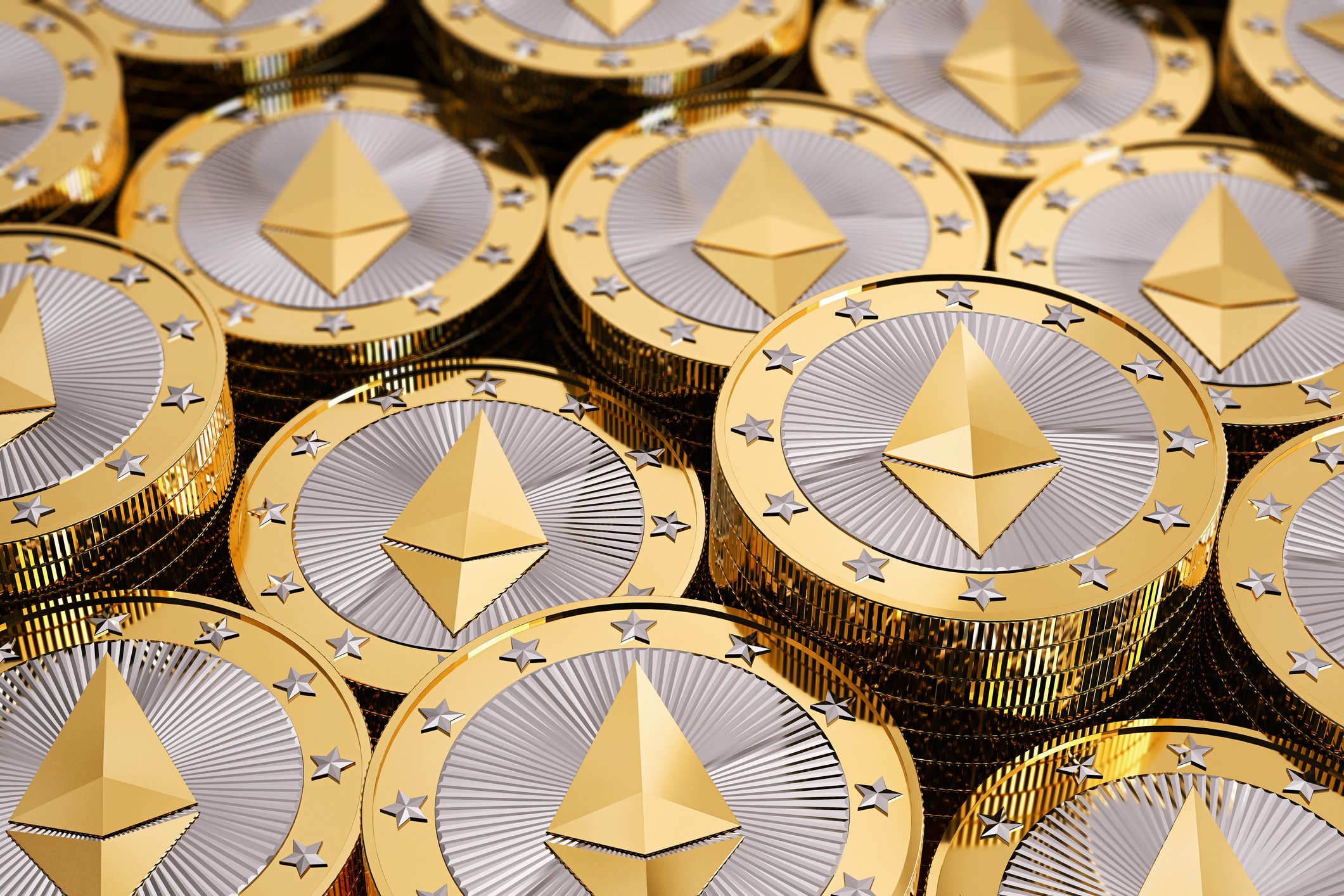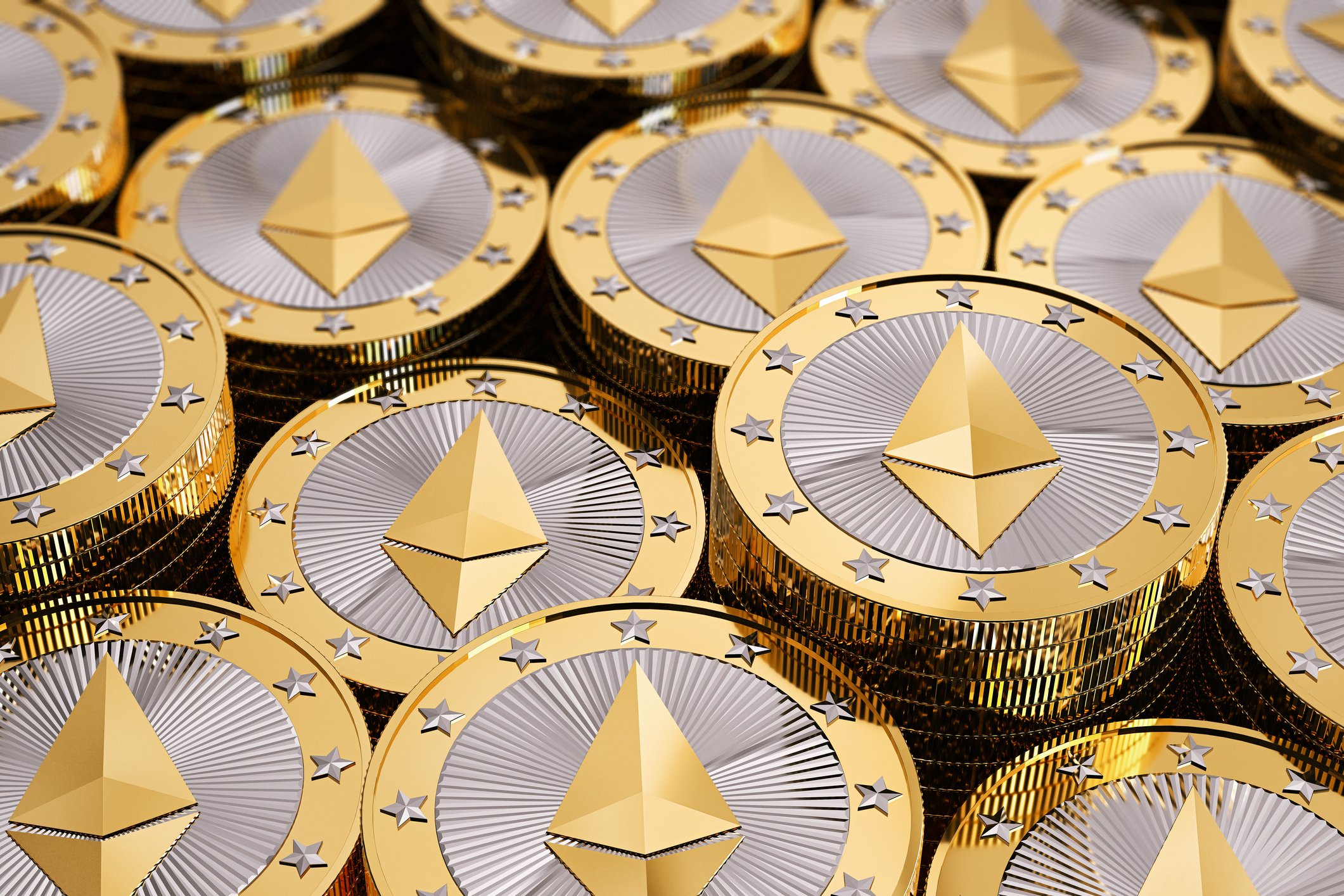Decentralized finance tokens such as Solana (SOL 5.17%), Uniswap (UNI +0.34%), Chainlink (LINK 0.51%), and Polkadot (DOT 1.22%) are having a euphoric day. They are up 16.25%, 10.61%, 8.61%, and 20.07%, respectively, in the past 24 hours, to $119.62, $28.57, $26.78, and $29.68 apiece as of 10:30 a.m. EDT. Major developments are coming to these DeFi networks that are solidly backed by fundamentals.
Investors have a lot of expectations for Solana, which is announcing a mysterious ignition event today. Users speculate that this will either be a token burn event similar to stock buybacks or a major infrastructure upgrade. Solana is a popular hub for creating DeFi infrastructure.

Image source: Getty Images.
Uniswap, a decentralized exchange (DEX) popular for trading altcoins, has rapidly gained popularity among American investors. Due to unique U.S. regulatory rules, fiat-to-crypto cryptocurrency exchanges, such as Coinbase (COIN 4.38%), cannot list altcoins for trading. So the only way to invest in this lucrative asset class is to utilize crypto-to-crypto exchanges like Uniswap. The platform has facilitated more than $386 billion in trades among more than 1.5 million users since its inception.
As for Chainlink, on Aug. 30, cryptocurrency derivatives trading platform Bingbon began using the network to integrate real-time asset price feeds to its platform. Bingbon has facilitated over $171 billion worth of derivates trading in over 100 countries since its inception. Chainlink is the world's top oracle token that connects blockchain data to application programming interfaces (APIs) in the real world, such as financial data, social-economic statistics, weather forecasts, etc.
On the same day, Parallel Finance, one of many projects on the Internet of Blockchain (IoB) network Polkadot, raised $22 million in Series A venture capital funding. Polkadot enables multiple blockchain networks to communicate with one another and share assets.
So what
If anyone would have brought up the idea a few years ago that, one day, parties could conduct financial transactions without a central authority (like corporations, governments, etc.) to broker and maintain trust, they would have been laughed at or ridiculed. However, much like the tech unicorns of Silicon Valley, DeFi networks are now rapidly disrupting traditional finance. For example, the annualized value of transactions between users of decentralized apps (dapps) on DeFi networks, namely Ethereum (ETH 2.02%), has reached a stunning $158 billion. These include video games, online casinos, DEX, marketplaces, and more.
Meanwhile, over $20 billion worth of capital has flocked to decentralized peer-to-peer lending platforms, such as Aave (AAVE 0.20%). Aave allows everyday investors to access a financial product previously only available to affluent investors -- asset loans. Users can pledge their cryptocurrencies, such as ETH, and receive a stablecoin loan to cover their everyday living expenses while their investment grows. Smart contract functionality guarantees lenders collateral in case the borrower defaults -- leading to very low interest rates.
DeFi is democratizing yet another market usually exclusive to high-net-worth individuals: fine art. Non-fungible tokens are certificates of ownership to digital assets such as images, videos, etc., traded over the blockchain. The main platform for NFT transactions is opensea.io, which saw $1 billion in trading volume during August alone. If NFTs are classified as intangible capital assets, users can hire an appraiser to certify their value, donate it to a charity, and deduct their full market value (including their capital gains) against their ordinary income to offset tax liabilities usually over a few years. Their popularity is soaring as a result, and anyone could theoretically do this as the NFTs trade for as little as 0.01 ETH.
Now what
The DeFi rally is far from over. Previously, it was impossible to broadcast sensitive personal information, such as copies of driver's licenses, passports, police reports, court documents, etc., securely and efficiently over the blockchain, without revealing their information to the public. But such data is needed for many financial products.
That is no longer the case. Last year, a group of researchers in South Korea found a way to kill three birds with one stone with next-generation zk-SNARK encryption: obfuscate images' sensitive personal data, allow other participants to validate their authenticity without revealing the information underneath, and reduce their size, so it's suitable for the blockchain. This means that the next wave of DeFi, such as decentralized peer-to-peer health, home, and auto-insurance products, is now a possibility. Definitely keep an eye out for these promising tokens as the sector undergoes the next revolutionary phase.












